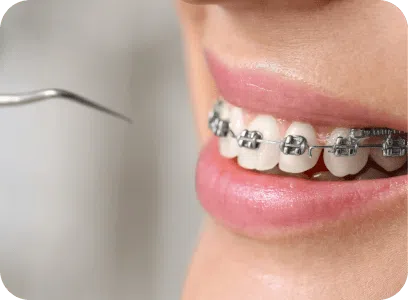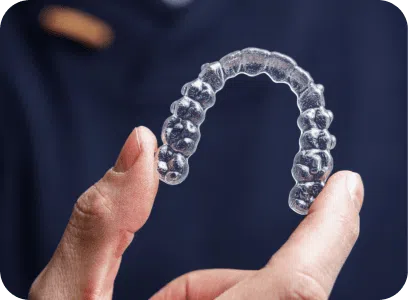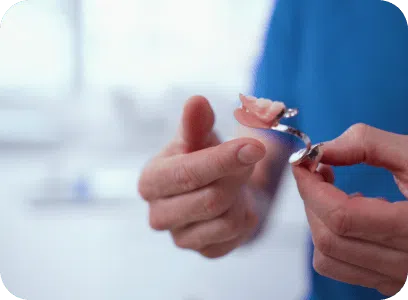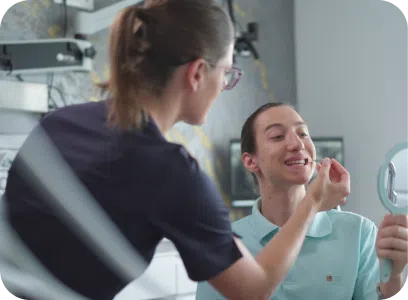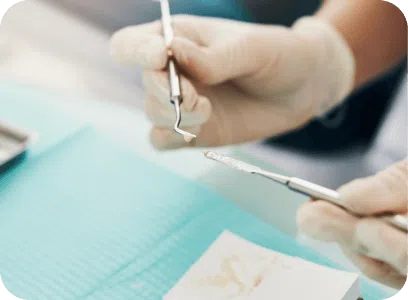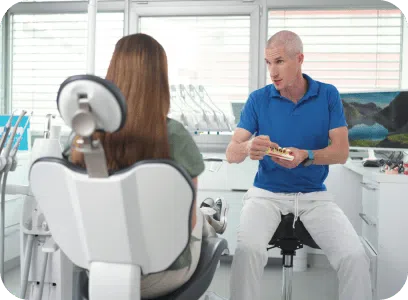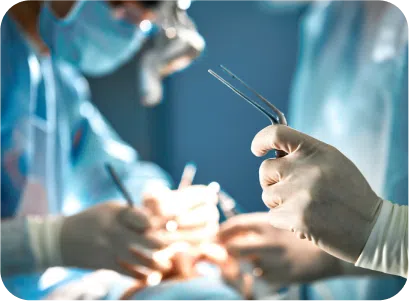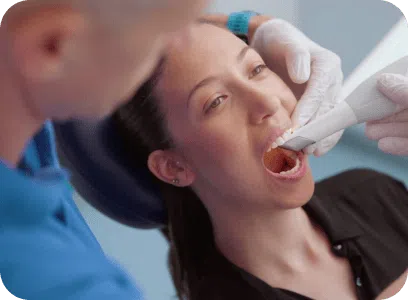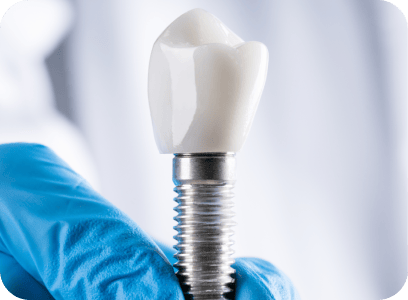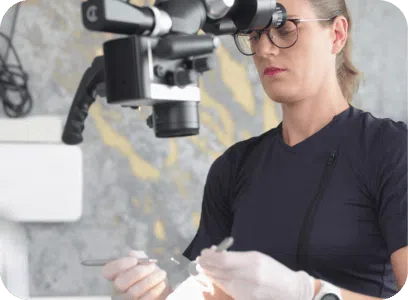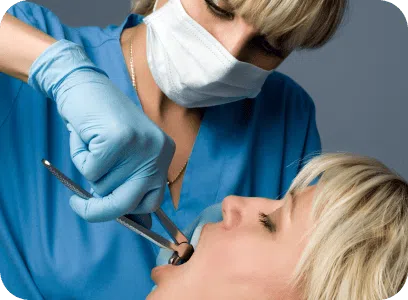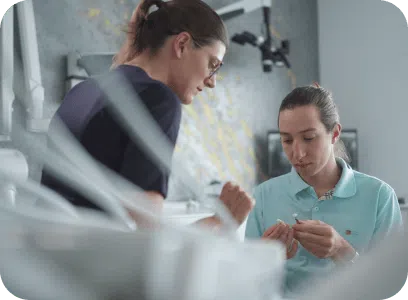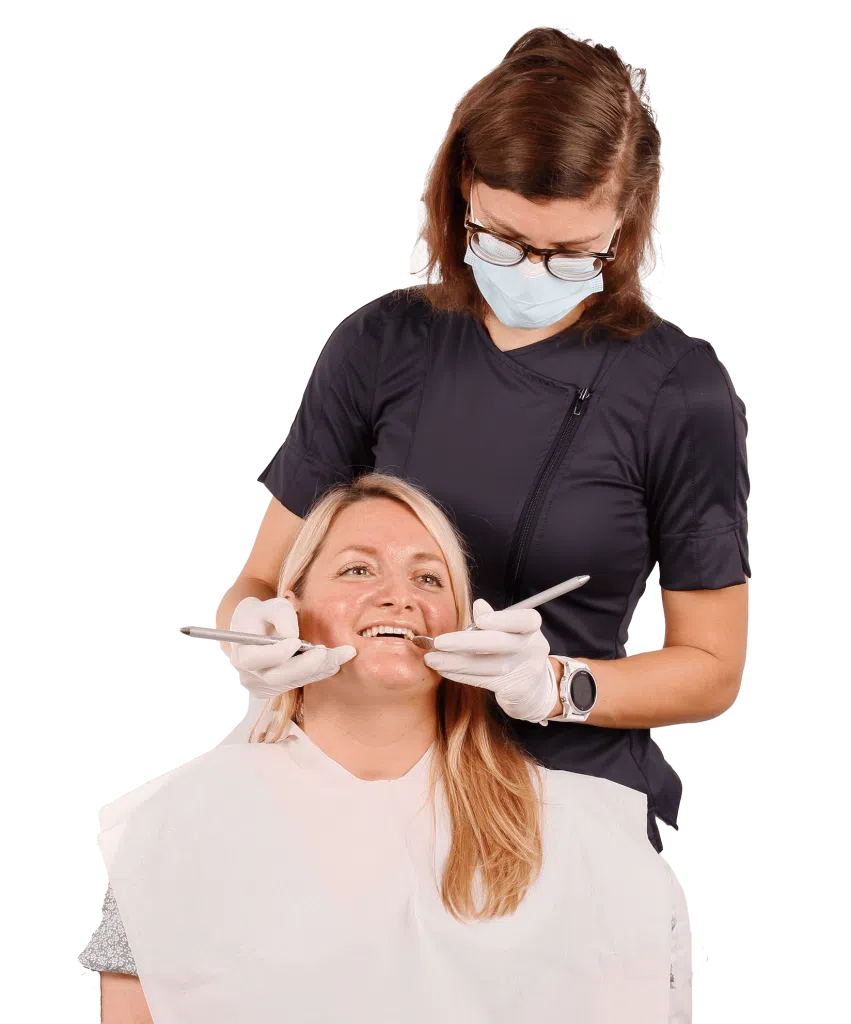Tooth extractions
Tooth extraction involves removing a tooth with a hopeless prognosis or a tooth causing damage to neighboring teeth or tissues. The procedure is performed under local anesthesia, making it completely painless and relatively quick. The process depends on the tooth’s position, the number and curvature of the roots.
Without pain
Modern techniques and anaesthesia make tooth extraction a painless experience. Our experts will ensure your comfort and safety throughout the entire procedure.
Fast recovery
After tooth extraction, recovery is fast and without complications. With precise aftercare instructions and the help of our expert staff, you'll soon be enjoying your smile again.
Customized approach
Each tooth extraction procedure is tailored to the individual. Our dentists will assess the condition of your tooth and tailor an approach to your specific needs and condition.
About the intervention
The key to the procedure is to avoid forcefully pulling the tooth but rather to use techniques and tools that do not damage the surrounding soft tissues and bone, ensuring the wound heals quickly and well.
Minimally unpleasant
At Blue Tooth, we try to make the procedure as uncomfortable as possible, so we will listen to your wishes or take the extra time to explain things to you so that your fear of the dentist will be gone from now on.
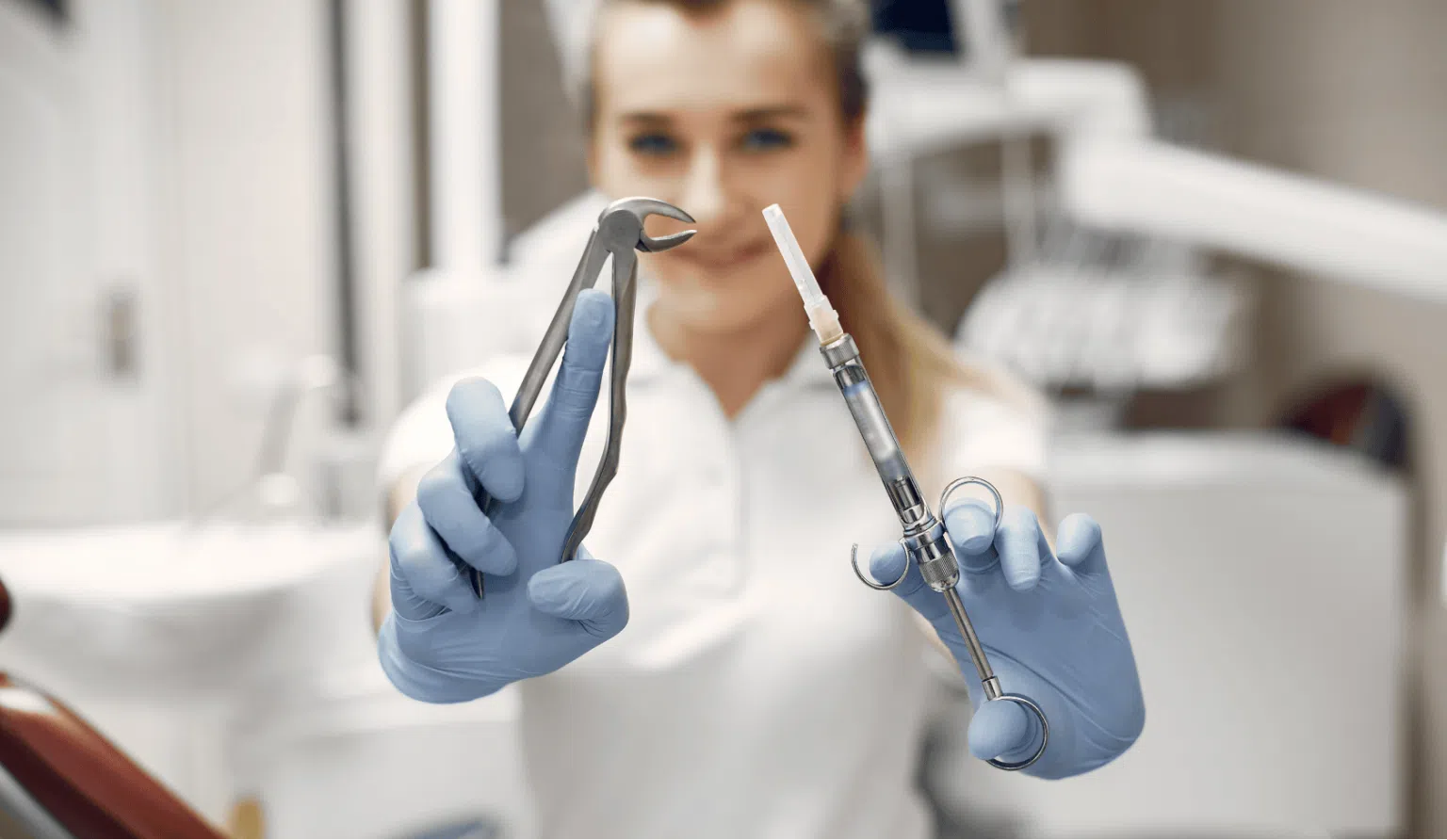
What do you need to know?
Examination and diagnostics
The procedure starts with a thorough examination of your teeth and oral cavity. Our experienced dentists will carefully assess the condition of the tooth to be extracted, as well as any risks and contraindications.
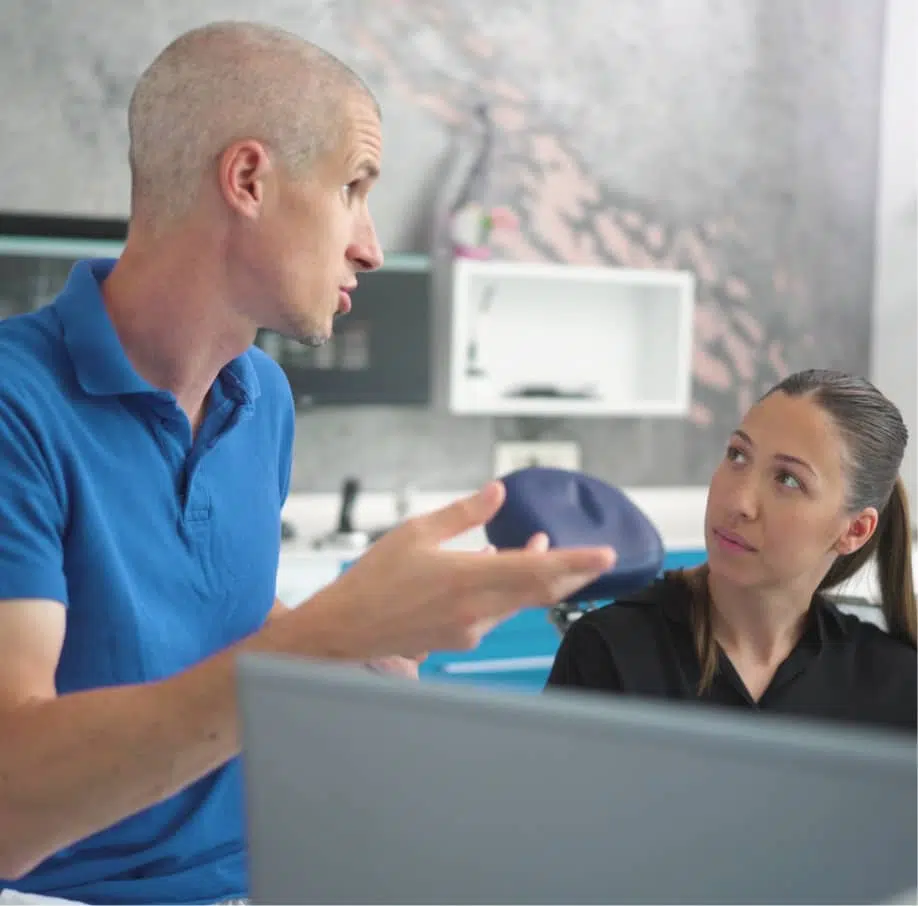
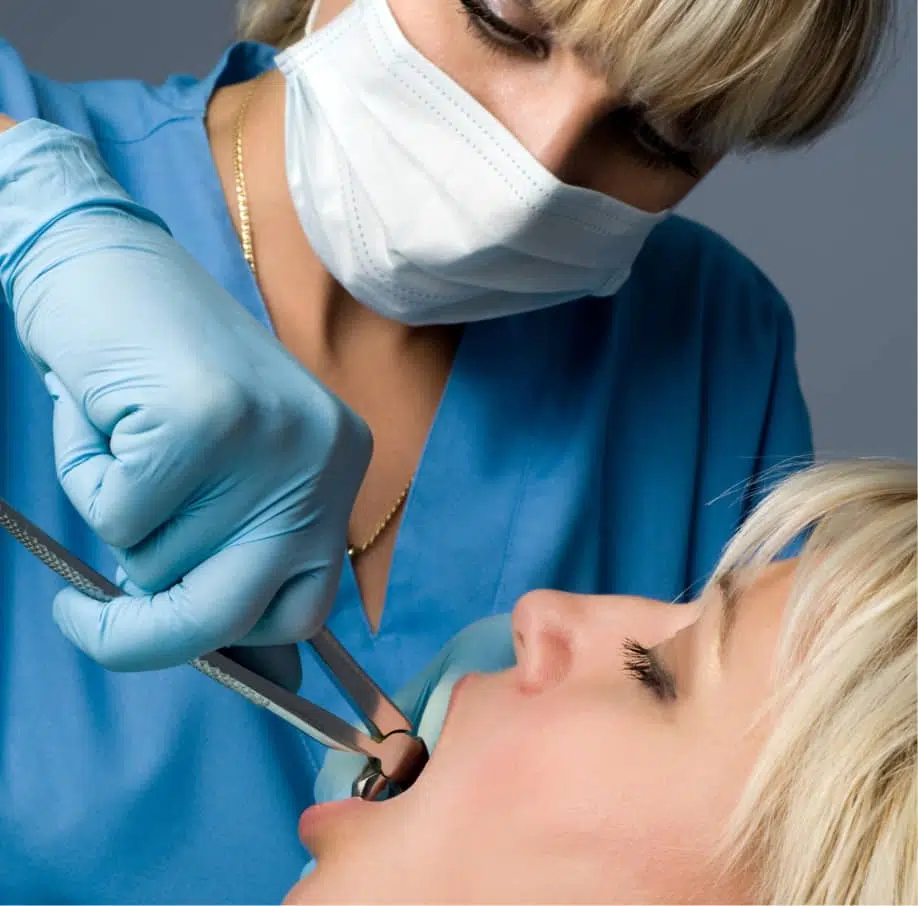
Local anaesthesia
Before the tooth extraction, you will receive local anesthesia, ensuring that the procedure is painless. This will fully protect you from any pain or discomfort during the procedure.
Tooth extraction
After successful anesthesia, the dentist will carefully remove the tooth from the oral cavity. He will use special instruments that allow safe and effective extraction, taking special care to minimise damage to the surrounding tissues.
Experienced team of experts
Our team includes dentists with many years of experience in tooth extractions, ensuring a safe and professional procedure.
Advanced equipment
At Modri Zob, we use the latest technology and equipment for precise diagnosis and tooth extraction in the most gentle and effective manner.
Comprehensive care
Our team will ensure your comfort and safety throughout the entire tooth extraction procedure and provide advice for a quick recovery afterward.
Post-operative care and advice
After the extraction, our specialists will provide appropriate care instructions. These tips will include how to care for the wound to speed up healing, and how to avoid factors that could cause complications.
Patients love us
... and their new smiles! 🙂

Modri zob Nova Gorica

Modri zob Kranj

Modri zob Kranj

Modri zob Kranj

Modri zob Nova Gorica

Modri zob Nova Gorica
Answers to frequently asked questions
What to do after the procedure?
After the procedure, mild swelling and pain may occur for a few days, with minor complications being rare. You can do the most to avoid complications yourself.
Here are some tips for the period after the procedure:
- Keep the gauze pad pressed on the wound for 30 minutes, then remove it.
- Initial wound healing takes 14–21 days. Pain may be present at the extraction site during this time. Complete bone defect healing is expected after 2–3 months.
- Due to the stress on the surrounding tissues during extraction, mild swelling may occur from day 1 to 4.
- To reduce swelling, cool the cheek with cold compresses immediately after the procedure for a few hours (20 minutes each hour).
- You can take painkillers for the pain but NEVER TAKE ASPIRIN!
- DO NOT RINSE or POKE THE WOUND!
- For the first two days after the extraction, eat soft, lukewarm/cold food. Drink cold liquids, but not through a straw.
- Avoid smoking, alcohol consumption, and strenuous physical activity for the first 3 days after the procedure.
- Maintain good oral hygiene, brush as usual, but be gentle around the wound area.
- If severe pain lasts more than 3 days after the procedure, or if there is bleeding, inflammation, or fever, contact us.
Is tooth extraction painful?
Tooth extraction is performed under local anesthesia, so the procedure is usually not painful. You may feel some discomfort after the procedure, which can generally be managed with pain relievers.
How long does recovery take after tooth extraction?
Recovery after tooth extraction depends on the complexity of the procedure and the individual. It usually takes a few days to a week to fully recover.
How to prepare for a tooth extraction?
Before the tooth extraction, you will meet with the dentist who will provide all necessary information and advice for preparing for the procedure. You may need to fast and stop taking certain medications.
Can tooth extraction be avoided?
In some cases, tooth extraction can be avoided with other dental procedures. However, the final decision will be made by the dentist, who will assess your situation.
What to do when a tooth fragment remains in the gums after extraction?
Sometimes a root fragment cannot be removed during the extraction. This is called a retained root. A specialist oral surgeon removes the retained root. The procedure involves numbing the surgical area with local anesthesia, cutting the gum, removing the bone over the tooth fragment, and then removing the fragment. The wound is stitched, and the stitches are removed after a week.
What are the pains after extraction? How can they be relieved?
Pain after extraction is moderate and can be alleviated with common pain relievers that do not affect blood clotting. Avoid taking aspirin for at least one week before and after extraction.
You might also be interested in...
